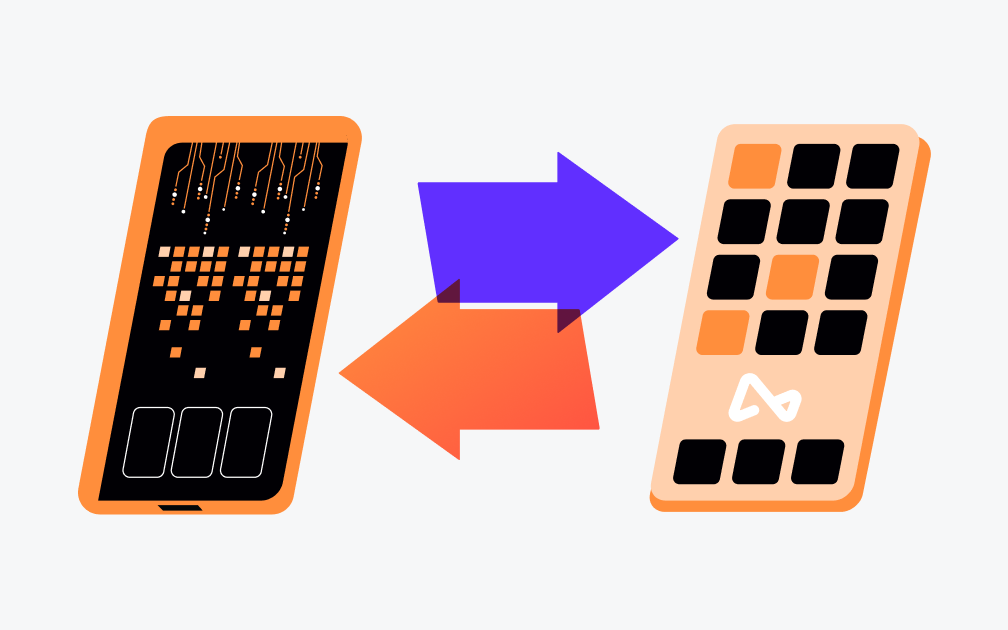How long do international bank transfers take?

- •How do international bank transfers work?
- •How long do international bank transfers take?
- •Common factors that delay international bank transfers
- •What details do you need to send money overseas?
- •What fees are involved in an international bank transfer?
- •Access fast, low-cost international transfers with Airwallex
The world moves fast, and we expect financial services to keep up. When we send money to businesses or individuals domestically, the transactions are instant, easy and free. In contrast, international bank payments take longer to settle, often with additional fees.
It can take up to one working week to complete a payment to an overseas bank account using traditional transfer systems, such as SWIFT. That’s why modern financial solutions that offer faster global money transfers are becoming more popular in recent years.
Let’s look at how international bank transfers work, how long they usually take and common factors that cause their delays. We’ll also find out the details and fees involved in these transfers.
How do international bank transfers work?
The most common form of cross-border transaction is a wire transfer using a secure messaging system called The Society for Worldwide Interbank Financial Telecommunication (SWIFT), which usually involves a fee. Sometimes, the international transfer takes place directly from the sender’s bank or financial institution to the recipient’s bank account. Other times, it goes through intermediary banks, which can lengthen the processing time and incur additional fees.
Another way is to go through fintech companies that offer faster and cost-effective international transfers. Our platform, Airwallex, helps businesses bypass the SWIFT network and send international transfers via local payment rails, which arrive in as little as one business day.
How long do international bank transfers take?
In general, international bank transfers take around one to five business days, sometimes longer. The exact timeframe depends on several factors, which we’ll explore in the next section.
It’s important for businesses to send international payments quickly and know upfront what fees they need to pay. Late payments to suppliers can cause delays to the supply chain, resulting in late delivery of goods and services. As transfer fees are often variable and may be deducted from the final settlement, your business may accidentally under-pay suppliers if you don’t correctly account for these fees.
Get fast international transfers at low cost
Common factors that delay international bank transfers
There are several factors that can affect international bank transfer speeds:
Bank processing time: Each bank or financial institution has its own unique processes to handle transfers, which affects the processing speed of international transfers.
Banking infrastructure: Bank transfers are likely to be faster between countries with well-established banking relationships and advanced financial infrastructure.
Country-specific regulations: Some countries have stricter rules for international transfers. This means more thorough documentation or checks, which can slow down transfers.
Currency exchange: More time is required to lock in fluctuating exchange rates. Less commonly traded currencies may have limited liquidity, leading to conversion delays. Some currencies are more strictly regulated and may have limitations on international transfers.
Regulatory compliance: Banks must perform Know Your Customer (KYC) checks and adhere to Anti-money Laundering (AML) regulations. Verifying customer identities and monitoring transactions for suspicious activity can sometimes add to processing times.
Time zones: If the sending and receiving banks are in different time zones, there may be gaps in processing time due to differing business hours.
Banking days and holidays: Transfers initiated outside regular banking hours, such as weekends, public holidays or towards the end of a business day are likely to be delayed.
Intermediary banks: Transfers involving multiple intermediary banks can increase processing time as each bank handles its own verification and processing steps.
Fraud prevention checks: Banks often implement security measures to prevent fraudulent transactions, and flagged transactions will take longer to process.
Technical issues: Technical problems with banking systems or communication networks can disrupt transfers.
Wrong recipient details: Errors in recipient bank details can cause transfers to fail or be delayed. Correcting errors and initiating a new transfer can add to the overall processing time.
What details do you need to send money overseas?
You’ll need to provide different details depending on your international money transfer method. If you’re sending money via wire transfer, you’ll need:
The recipient’s full name
The recipient’s bank account details, including bank name, bank address, branch or office location (if applicable) and account number
The BIC/SWIFT code of the recipient’s bank
If the recipient is in Europe, you may need the recipient’s IBAN (International Bank Account Number), which identifies the bank account for the transfer
You’ll also need to provide your bank account details and the transfer amount.
What fees are involved in an international bank transfer?
International bank transfer fees vary depending on several factors, such as the financial institution or service provider, the transfer method and transfer amount. Here are some common expenses you may encounter when sending money abroad:
Transfer fees: Banks may charge a fee for processing the transfer.
Exchange rate margins: The exchange rate margin is the difference between the mid-market exchange rate and the exchange rate set by the bank. This expense can often be hidden, so make sure you get a good deal with your financial institution.
Intermediary bank fees: If the transfer involves multiple banks, they may each charge a fee which they deduct from the transfer amount, so the recipient receives a reduced amount.
Recipient bank fees: The recipient's bank may charge a fee for receiving and processing incoming international transfers. These fees can vary by bank and country.
Sending fees: Sometimes, your bank may charge you a fee for initiating an international money transfer.
Currency conversion fees: If you're sending money in a currency different from your account's base currency, your bank or transfer service may charge a currency conversion fee. This fee is separate from the exchange rate margin.
To find the most cost-efficient way of sending money abroad, compare the solutions offered by different financial companies to determine which one works best for you. Take note of exchange rate margins and other hidden costs, and consider using specialised companies that may offer better rates than traditional banks.
Traditional financial institutions can be slow to complete international money transfers. They can charge high foreign exchange (FX) rates and additional fees. Modern fintechs specialising in international transfers usually transfer money overseas quickly and at lower rates than traditional banks.
Access fast, low-cost international transfers with Airwallex
Looking for a more efficient way to manage your international payments? Airwallex offers a suite of streamlined solutions that are faster, more cost-effective, and more transparent than traditional banks.
Our proprietary local payments network simplifies and reduces the cost of international transfers across 90 countries, by using local payment rails instead of the SWIFT network.
With Airwallex, you can operate like a local business from anywhere in the world. Open accounts in multiple currencies, receive payments locally, and send money worldwide with ease. You can send money in over 60 currencies across more than 150 countries and regions, where full payments are usually received in as little as one business day. Airwallex FX rates are market-leading, with no hidden fees.
Stay competitive with modern financial solutions
Share

David manages the content for Airwallex. He specialises in content that helps EMEA businesses navigate global and local payments and banking.
View this article in another region:AustraliaCanada - EnglishCanada - undefinedNew ZealandSingaporeUnited KingdomUnited StatesGlobal
Related Posts

What is the SWIFT banking and payment system? How it works in 3 s...
•6 minutes

International wire transfer: How to quickly send money abroad
•5 minutes